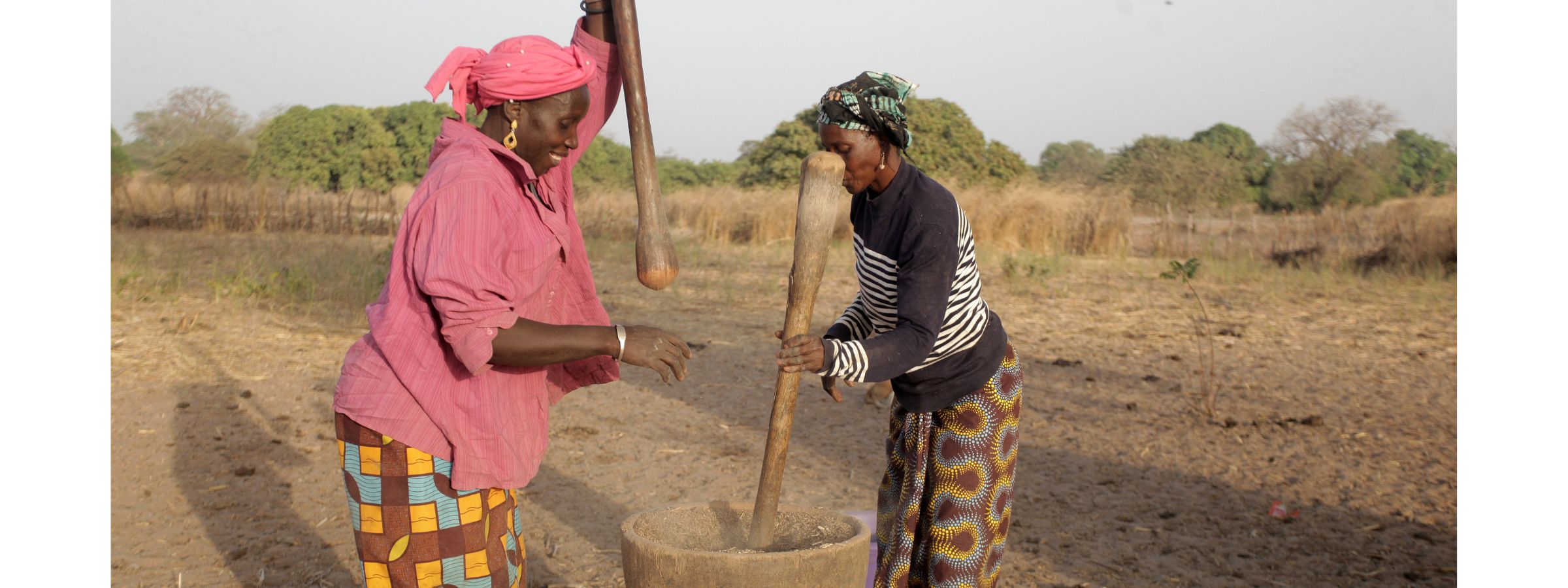Part two:
The Central Bank of The Gambia, AFI member since 2017, launched its National Financial Inclusion Strategy this year, with special focus on women and youth. We talked to Governor Buah Saidy to learn about the central bank’s policies that are expected to bring up to 70 percent of adults into the formal financial sector over the next three years.
In the first part of the interview, Governor Saidy discusses implementing practical policies for financial inclusion of small-scale farmers who represent a backbone of the economy and how to build their resilience and help them from mitigate impacts of the climate change. In the second part of the interview, Governor Siady focuses on NFIS goals, how digital financial services can support these goals and the role of the central bank in the AFI network.

Governor of the Central Bank of The Gambia Buah Saidy
AFI: The Gambia launched its first National Financial Inclusion Strategy (NFIS) at the beginning of 2022 with the aim of giving financial access to 70 percent of adults by 2025. What interventions are most important in enabling the most vulnerable groups such as women and youth, to access the formal financial system?
Governor Buah Saidy: There are two key interventions to fast-track the inclusion of vulnerable women and youth in the formal financial system: designing policies to enhance financial literacy and strengthening the consumer protection framework of financial institutions.
Our NFIS includes a Financial Literacy and Consumer Protection Working Group. Its mandate is to raise awareness and provide adequate redress mechanisms for users of financial services, particularly women and youth. As a first intervention, the Working Group reviewed the consumer protection guidelines to ensure that they adequately protect consumers, especially in the context of digital finance.
With AFI’s support, a Gender Sensitive Consumer Protection Framework has been developed that will guide the activities of financial institutions, for example, to give guidance on how to develop and offer gender-sensitive products and services.
We at the CBG continue to support the Women Enterprise Fund (WEF) and the Ministry of Youth and Sports (MOYS) in improving financial access of women and youths:
- The CBG granted a loan to MOYS to provide financial access to youth engaged in the business of rearing farm animals.
- The CBG seconded a staff member to WEF to provide technical assistance in the implementation of policies to accelerate financial inclusion of women.
Finally, the Bank has developed FinTech Guidelines with a view to stimulating growth of the sector, accelerating the pace of financial inclusion and onboarding vulnerable women and youth.
AFI: What role do digital financial services play in increasing access and use of formal financial services to reach the goal of 70 percent of adults being part of the formal financial system?
Governor Buah Saidy: Current constraints involve access to financial services. For example, distance to services, limited rural finance infrastructure, high transaction costs for both demand and supply sides, etc. To overcome these constraints, digital financial services (DFS) bring finance to the doorsteps of customers with several consumer-centric products that can be easily accessed if adequate digital infrastructure is available. DFS has significant potential as a lever for financial inclusion, as the Gambia has one of the higher mobile penetration rates in the subregion. There is great enthusiasm with the rapid emergence of FinTechs and the Central Bank’s regulatory sandboxes which should allow and accelerate innovation.
The Bank is working on strengthening the Gambia National Switch (GAMSWITCH) to widen the national platform for DFS, strengthen the payments connections for peer–to–peer (P2P), government-to-peer (G2P) and power-to-gas (P2G) digital transactions.
Also, with mobile money providers, people without bank accounts can also conduct financial transactions. Mobile money providers have enabled people to purchase airtime, cash power, pay utility bills via their mobile phones. With the current trajectory, we project that the uptake of such services will increase dramatically, contributing to the important role of digital payments in fast-tracking financial inclusion.
AFI: The Central Bank of the Gambia has been an AFI member since 2017. Can you describe how the Central Bank has collaborated with AFI and other members to advance financial inclusion in the Gambia and more broadly.
Governor Buah Saidy: CBG is an active member of AFI and pays a membership fee to support the Network. We have received technical support from AFI to build the Bank’s capacity to formulate and implement the NFIS, including the support for peer country study tours and in-country activity implementation grants.
In addition, we have members in each of the seven AFI Working Groups (WGs) and have participated in developing some of AFI’s knowledge products. AFI has supported the Bank in providing sponsored trainings on frontier financial inclusion topics for the NFIS Working Groups annually, as well as for attending variety of AFI events, including working groups, regional initiatives, and the Global Policy Forum. The AFI WGs provides a platform to share experiences as well as learn from peer countries. In this regard, we have gained technical support and insights on financial inclusion policies through our regular participation in the group meetings.
Click here to read part one of the interview.

